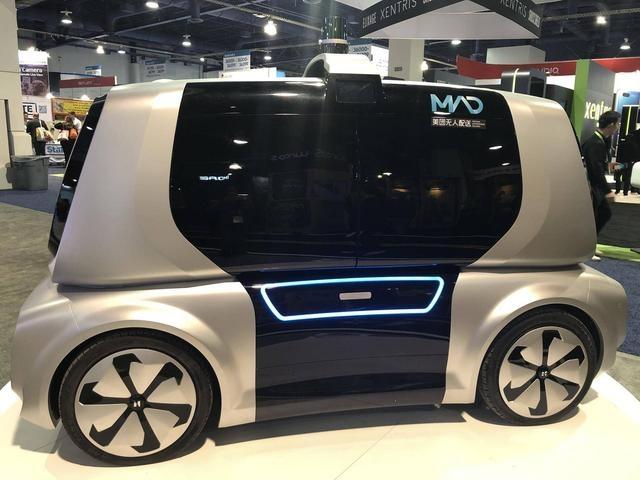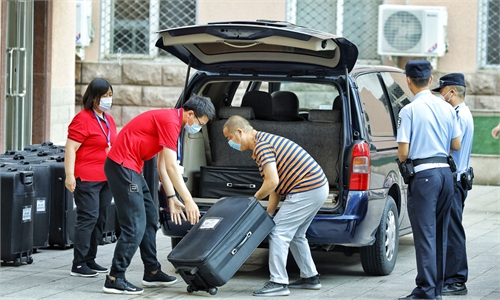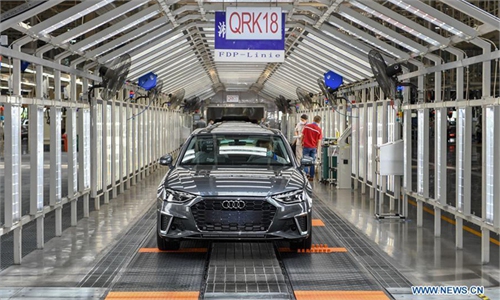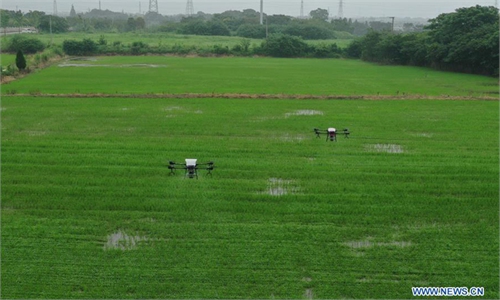SOURCE / INDUSTRIES
Unmanned vehicle and drone delivery will be common in 3-5 years: Meituan

A Meituan unmanned delivery vehicle on display on CES 2019 Photo: Meituan
Unmanned vehicle and drone delivery will be common in the future, said a chief scientist of Meituan, an industry giant in online food delivery, during the 2020 World Artificial Intelligence Conference.
Meituan is exploring the use of driverless cars and drones for urban delivery, said Xia Huaxia, a chief scientist of Meituan on Friday, media reported.
"Several Meituan unmanned delivery vehicles have been running regularly in the Shunyi district of Beijing during the coronavirus outbreak. The vehicles will enter large-scale operation in three to five years after technical difficulties are solved," Xia introduced.
During the second wave of the COVID-19 outbreak in Beijing in June, residents in a district of the city were able to enjoy Meituan food delivery services using unmanned vehicles in order to reduce social contact and curb the spread of the virus. The precise positioning system of the cars was provided by the BeiDou Navigation Satellite System, cctv.com reported on Saturday.
Back in February another e-commerce giant, JD.com, provided its unmanned delivery vehicles to hospitals in Wuhan, the city hit hardest in China, to help fight the epidemic and were responsible for the delivery of 70 percent of the orders from Wuhan Ninth Hospital and nearby communities.
Meanwhile, drones have been developed over several generations and have made test flights in big cities including Beijing and Shenzhen in South China's Guangdong Province and are expected to be in service in three to five years, according to the scientist.
Chinese tech giants such as Alibaba and Suning have also launched research and deployment of driverless delivery cars in recent years. Industry insiders predict that the unmanned delivery market is expected to be worth 100 billion yuan ($14.29 billion) in terms of the demands of express delivery, takeout and fresh delivery.
Meituan has not entered the field of self-driving vehicles with passengers, but the technology of carrying objects and passengers is consistent. "There are still many technical challenges, from algorithms, sensors and computing power, that need to be improved," Xia added.



